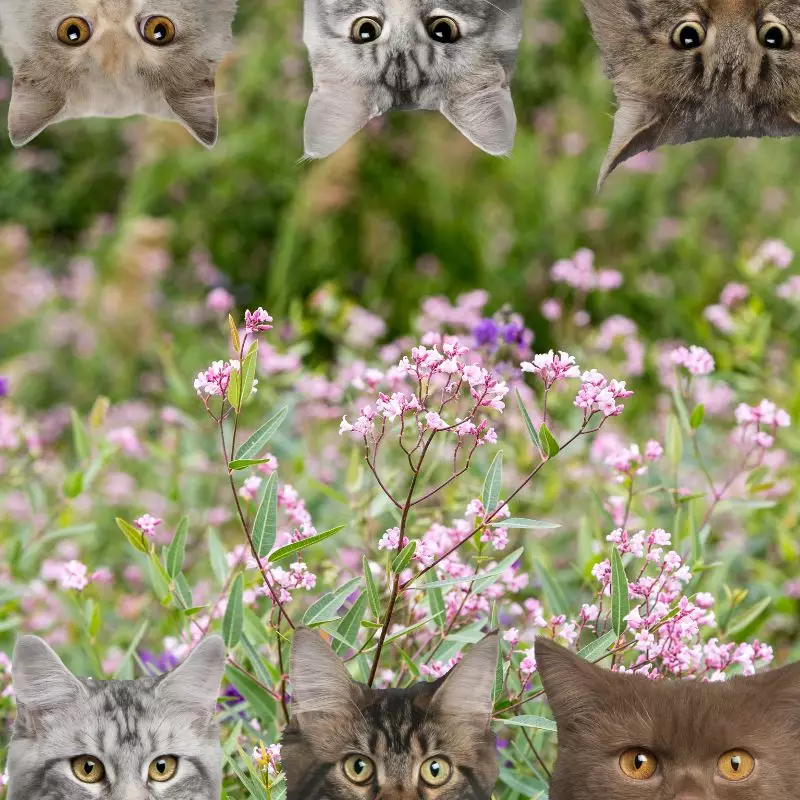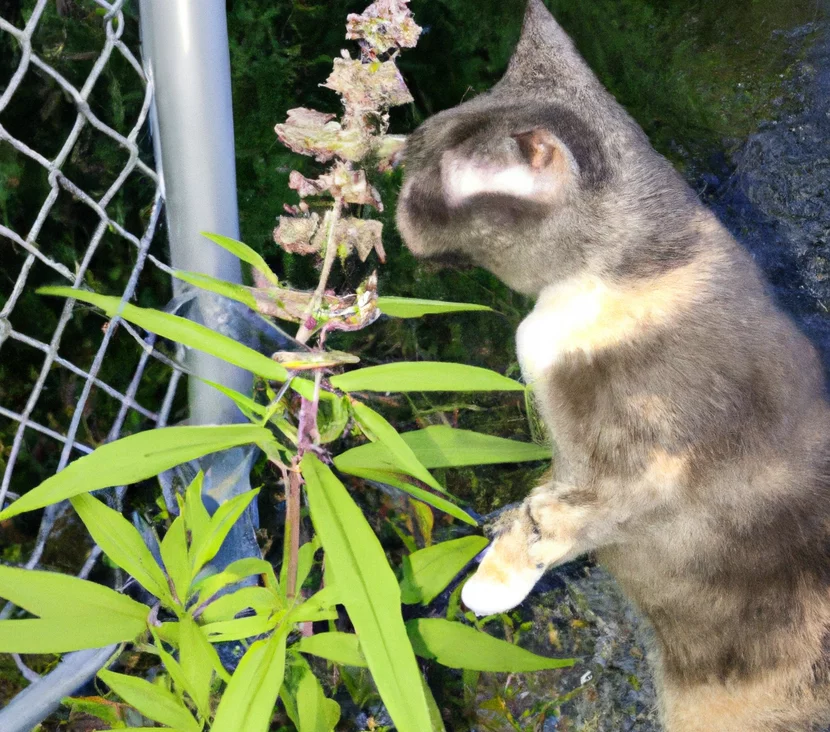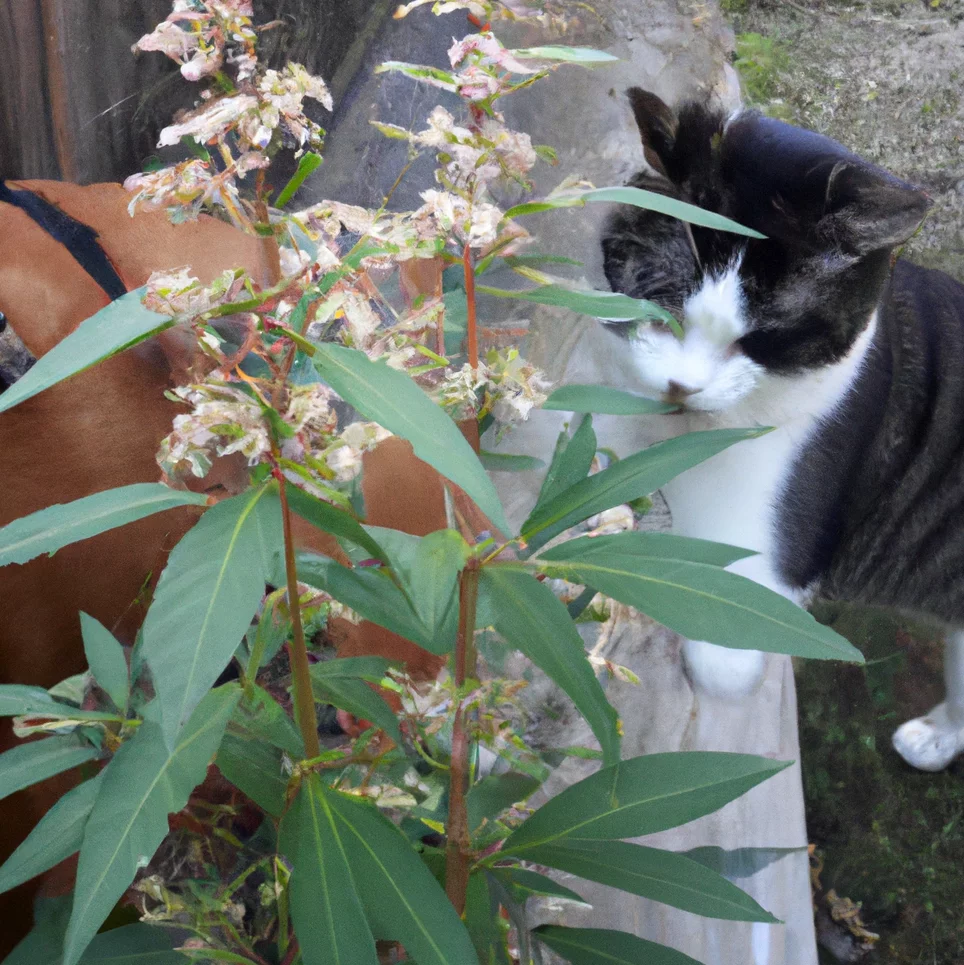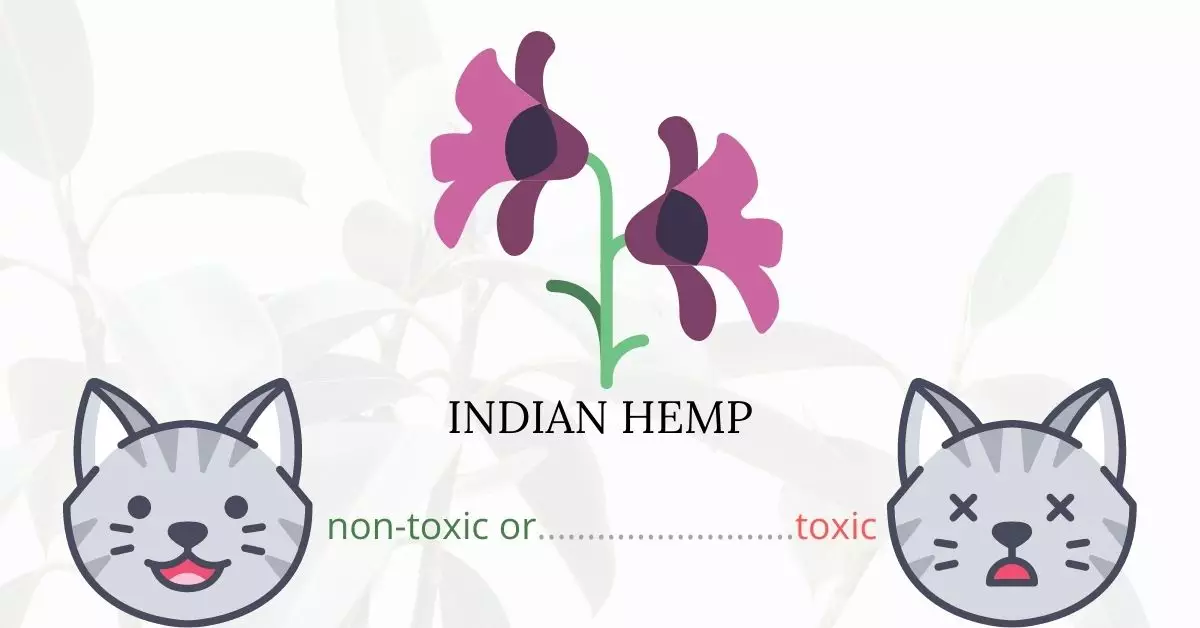Yes, Indian Hemp is toxic to cats. Indian hemp is a perennial herbaceous plant containing cardiac glycosides such as bufadienolides and cardenolides. When ingested by cats, these substances can disrupt the electrolyte balance of the heart’s contracting muscle. Consequently, this can lead to severe cardiovascular, neurological, or gastrointestinal complications.
This article was written in collaboration with a team of experienced DVMs (doctors of veterinary medicine). With their insights, we ensure that the information provided about the potential risks of various plants, in this case, Indian hemp, is accurate and current. Furthermore, our team has extensively researched high-authority websites such as ASPCA and PetMD to validate our findings on every plant discussed.
Clinical Signs of Indian Hemp or Dogbane Hemp Poisoning in Cats

Indian Hemp contains cardiac glycosides which, when ingested, have profound effects on a cat’s physiological systems, particularly targeting the heart. When a cat comes into contact with, smells, or consumes parts of the Indian hemp plant, it may experience the following symptoms and their underlying causes:
- Convulsions and Seizures: Caused by the toxins interfering with the cat’s central nervous system, leading to involuntary muscle contractions and spasms.
- Weakness of the Body: A result of the body’s overall response to the toxin, diminishing the cat’s strength and vitality.
- Blue Mucous Membranes: This indicates insufficient blood oxygen levels, caused by impaired cardiac function and reduced circulation.
- Loss of Appetite and Nausea: A reaction of the cat’s gastrointestinal system to the toxins.
- Dilated Pupils: Resulting from the neurotoxic effects of the toxins on the cat’s eyes.
- Fever: A systemic inflammatory response as the body attempts to fight off the ingested toxins.
- Increased Pulse Rate and Irregular Heartbeat: Direct consequences of the toxins affecting the cat’s heart by altering its natural rhythm and pace.
- Tremors: Another manifestation of the toxins’ impact on the central nervous system, leading to involuntary muscle shaking.
- Vomiting and Drooling: Indications of gastrointestinal upset and the body’s attempt to expel the toxins.
- Potentially Lethal Potassium Levels: The toxins from the plant can interfere with the body’s electrolyte balance, causing dangerously high potassium levels which can further exacerbate cardiac symptoms.
It’s crucial to be aware of these signs and seek immediate veterinary care if a cat is suspected to have come into contact with Indian Hemp.
First Aid and Treatment of Indian Hemp or Dogbane Hemp Poisoning in Cats

If your cat’s toxicity is not life-threatening, the veterinarian will provide symptomatic and supportive treatment. This process may include inducing vomit by giving an emetic to your cat, or administering activated charcoal if your cat has not vomited yet. This substance bind with the toxic agent and prevents the cat’s body from absorbing more plant chemicals. The feline’s treatment may conclude with intravenous fluids to flush the toxin from his or her blood and restore hydration.
Other procedures and medications may still be given by the vet based on his diagnosis of your cat’s condition.
Recovery from Indian Hemp or Dogbane Hemp Poisoning in Cats

The prognosis for cats suffering from mild to moderate Indian hemp poisoning is usually favorable. If your cat consumed a large amount of Indian hemp and has underlying health issues, the prognosis may be bleak. To avoid negative consequences for your cats, it is critical that the poisoning symptoms be addressed as soon as possible.
Prevention of Indian Hemp or Dogbane Hemp Poisoning in Cats
Keeping your cats confined in your home is an ideal way of preventing them to be exposed to Indian hemp and even other toxic plants in your surroundings. Try utilizing cat cages or playpens to keep them engaged while safe. You can also install safety nets and build fences around your lot area to restrict your cat from wandering away from home.
If you love plants but have cats at home, check out these lists:





